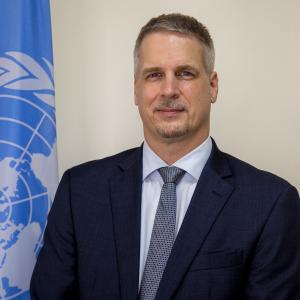It is an honor and privilege to join you today for the Second Steering Committee Meeting of the Joint SDG Fund Project on SDG Localization in Fiji.
And I would like to start by thanking our partners at the Ministry of Local Government, Suva, Lautoka, and Labasa Councils, UNESCAP, UN-Habitat, and all stakeholders who played such an instrumental role in bringing this initiative to life.
We are at a truly pivotal moment.
As Fiji prepares for its first local elections in more than 16 years, we have a real chance to do things differently – to shape a new chapter of local governance that is inclusive, sustainable, and accountable.
The decisions we make today will help define what that future looks like.
This initiative is not just timely – it is transformational.
It offers a concrete platform to embed the SDGs into how our towns and cities are planned, financed, and governed, integrated with Fiji’s National Development Plan.
It is about making the 2030 Agenda real at the local level, where it matters most.
We have already seen what is possible. Suva’s Voluntary Local Review was a first for Fiji and the Pacific, and it delivered powerful insights.
- It showed us that local data ecosystems are essential, because when local leaders have the right information, they can make better decisions.
- It reminded us that capacity building is not a one-off activity– it must be sustained and tailored to the needs of local actors.
- And it proved that partnerships are the engine behind all meaningful progress, across levels of government, with academia, civil society, and the people we serve.
Now, Lautoka and Labasa are taking the baton forward, and a national training programme is underway – a testament to how fast good practices can spread when there is ownership and momentum.
So, today is more than a stocktaking exercise. It is a decision-making moment. And I would like to highlight three strategic actions that will be key to anchoring our work for the long term:
First, we need to strengthen the planning and budgeting capacity of our local councils.
That means investing in technical expertise – like urban planning, GIS, and M&E – and ensuring that vulnerable groups, including women, youth, and persons with disabilities, are meaningfully engaged in local development processes.
Second, we need to institutionalize SDG monitoring within municipal systems. This is about moving from reporting to real results – embedding the SDGs into the core of how cities plan and deliver services.
Third, we need to integrate SDG training into the ongoing learning systems of local councils. This is how we ensure continuity, even as leadership and administrations change.
If we align behind these priorities, we can turn a promising initiative into a lasting legacy.
Let us use today to commit – not just to deliverables, but to a new way of working together: across levels, across sectors, and with communities.
This is how we turn global goals into local action – for every Fijian, in every municipality, in every community
Vinaka Vakalevu, Dhanjavaad, Thank You









